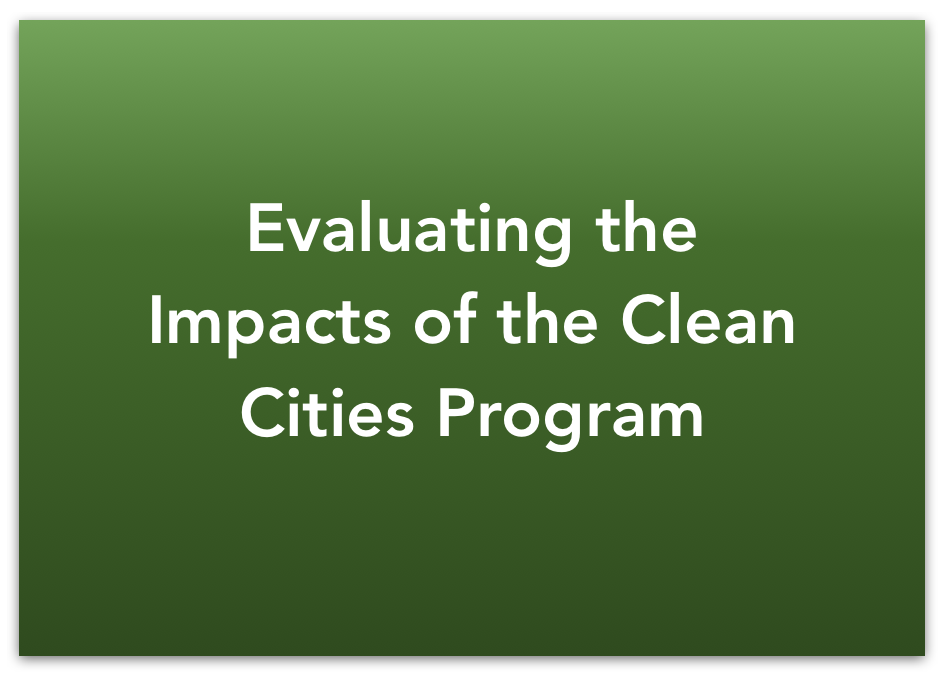World Resources Institute China Office and the UNC Chapel Hill conducted a study to examine the Clean Cities program’s impact on air quality and petroleum demand reduction between 1990 and 2010 by comparing countries located inside and outside the boundaries of Clean Cities Coalitions.
“We quantify the effectiveness of the Clean Cities program by focusing on performance measures such as air quality, number of alternative fueling stations, private vehicle occupancy and transit ridership. We find that counties that participate in the program perform better on all these measures compared to counties that did not participate. Compared to the control group, counties in the Clean Cities program experienced a reduction in days with bad air quality (3.7%), a decrease in automobile commuters (2.9%), an overall increase in transit commuters (2.1%) and had greater numbers of new alternative fueling stations (12.9). The results suggest that the program is a qualified success.”
Read the full study that was Published in Science of the Total Environment in June 2016 here.

0 Comments Leave a comment
Comments are closed.